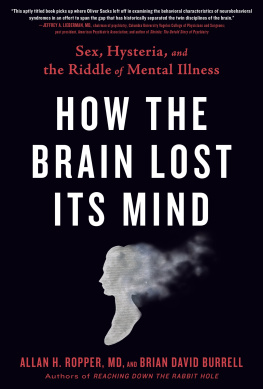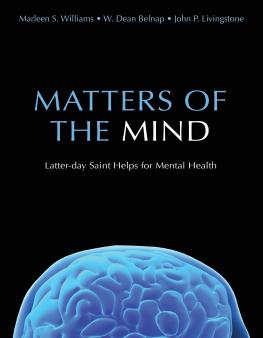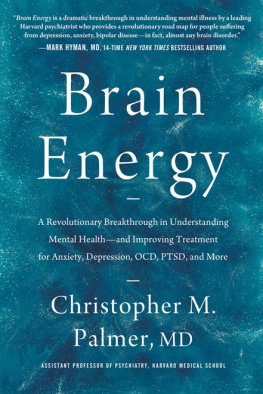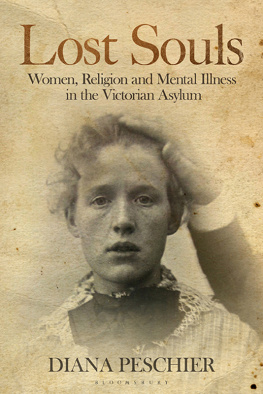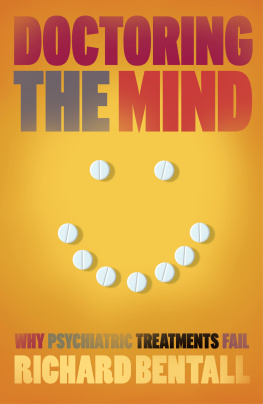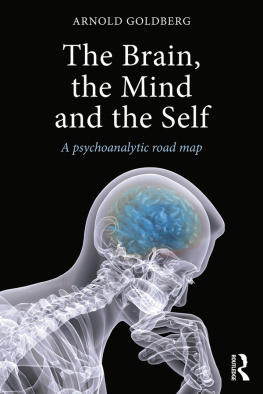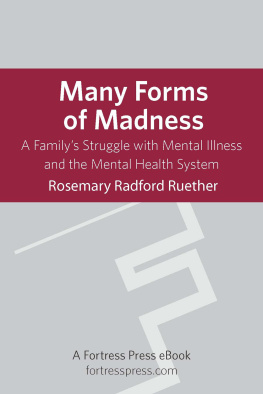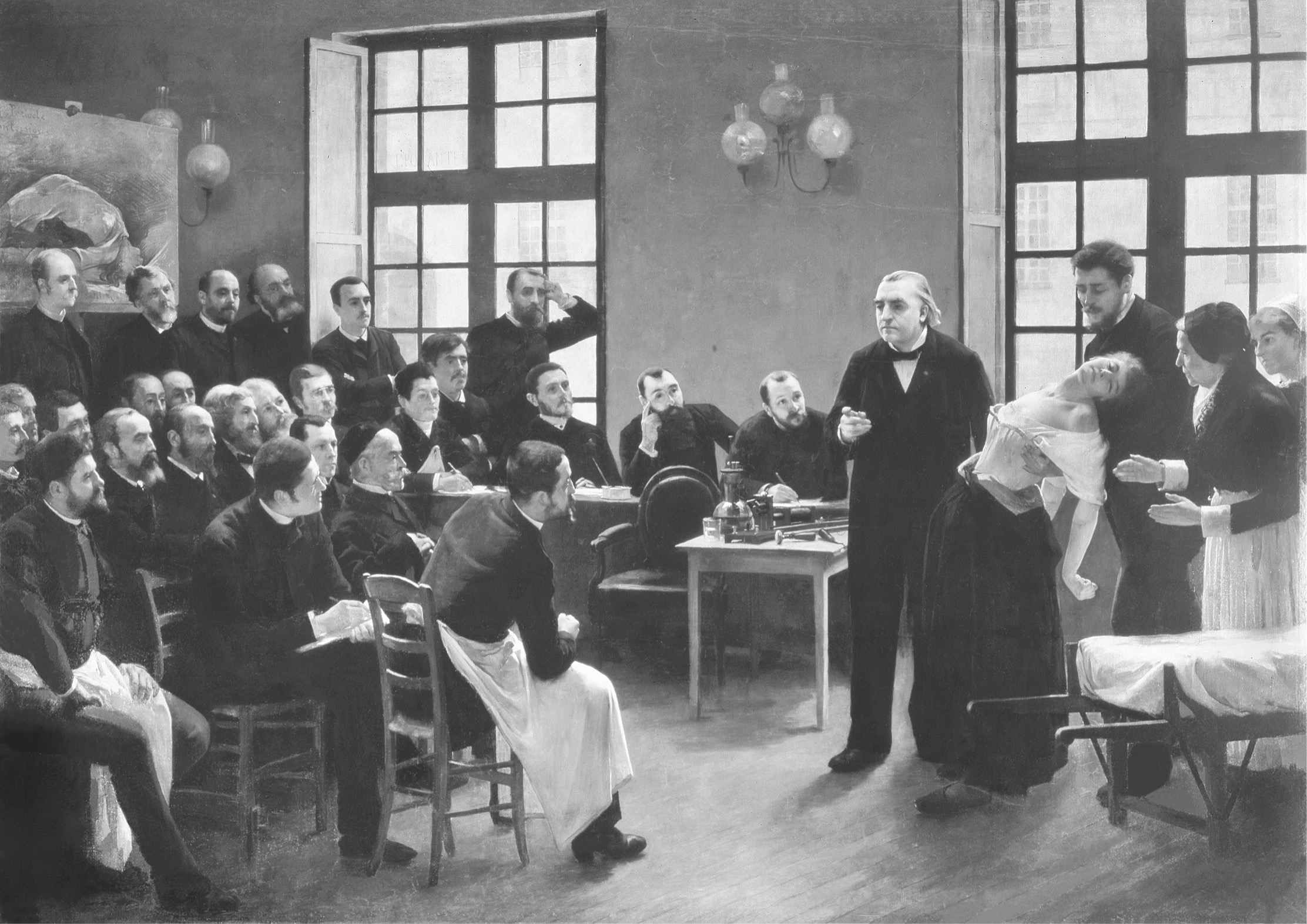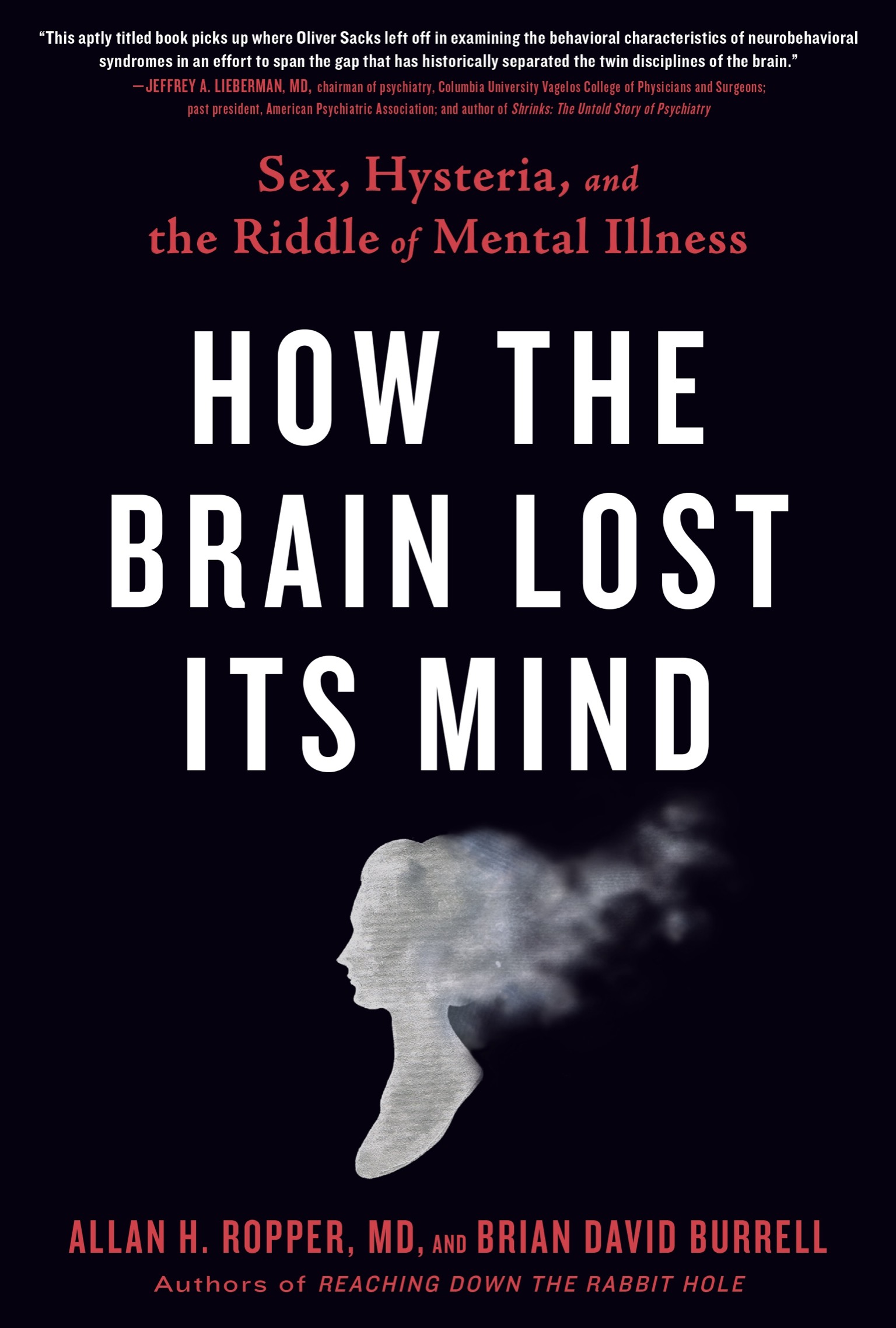
Praise for How the Brain Lost Its Mind
This aptly titled book picks up where Oliver Sacks left off in examining the behavioral characteristics of neurobehavioral syndromes in an effort to span the gap that has historically separated the twin disciplines of the brain, neurology and psychiatry. In contrasting the organic (general paresis of the insane) with the ethereal (hysteria), this neuropsychiatric treatise brings the two divergent disciplines closer together without committing to their ultimate unification.
Jeffrey A. Lieberman, MD, chairman of psychiatry, Columbia University Vagelos College of Physicians and Surgeons; past president, American Psychiatric Association; and author of Shrinks: The Untold Story of Psychiatry
Occasionally, a treatise arrives that challenges conventional reductionist notions that brain and mind can be unified through the neuroscience of the brain. Current brain analysis via brain scans, neural networks, genomic analysis, and psychopharmacology has not seduced Ropper and Burrell, who take the contrarian position that there is a subjective mental life that organizes itself. In an unusually readable and surprisingly lyrical account of syphilis, a surrogate for mental disorders caused by brain destruction, and hysteria, a stand-in for psychiatric disorders, they create a fascinating tension between neurology and psychiatry and offer thoughts on unifying the two fields of clinical medicine. Their original interpretations of Conrads Heart of Darkness and Thomas Manns Dr. Faustus alone make the book worth reading as literary criticism.
Joseph B. Martin, MD, PhD, dean emeritus, Harvard Medical School
A sweeping narrative of how the concept of mental illness evolved in the context of culture, history, and science. How the Brain Lost Its Mind is written with wit and wisdom and filled with vividly depicted colorful charactersfrom Freud to Maupassant to the Marquis de Sade, from the physicians of nineteenth-century Europe to the public health commissioners of 1930s New York. Ropper and Burrell trace the riveting history of the science of the mind and brain, revealing how and why neurology and psychiatry split, and how the future of medicine depends on their reunification.
Aaron Berkowitz, MD, PhD, associate professor of neurology, Harvard Medical School; author of Clinical Neurology and Neuroanatomy and The Improvising Mind
I have listened to, watched, and read Allan Ropper on subjects related to the brain for thirty years. Hes still my teacher, but Ive never seen him teach like this. Along with his friend and gifted coauthor, Ropper takes us on a romp through centuries of cultural and scientific history. Theres a kicker: can that history clarify and crystallize through the lens of just one nasty disease? Yes. Read how in this page-turningly accessible and brilliant book.
Edison K. Miyawaki, MD, assistant professor of neurology, Harvard Medical School; author of The Frontal Brain and Language
Through tales of eminent physicians and their suffering patients, replete with sex, drugs, and magnetically induced hypnotism, we learn how a bacterium that deprived countless souls of their reason also helped scientists discover a role for brain biology in mental illness.
Alan Jasanoff, author of The Biological Mind; professor of biological engineering, brain and cognitive sciences, and nuclear science and engineering
It is remarkable how much influence syphilis has had on human history and how widespread the disease has been. Even today, the subject is generally off limits, which is why the story remains mostly unknownand why How the Brain Lost Its Mind makes for compelling reading. Like all well-written historiesand this one is very well writtenthe narrative engages like a mystery novel. But the story is true, and replete with sometimes salacious, sometimes revelatory details. Ultimately, it is the story of the beginning and development of the modern scientific study of the brain and the mind: the false leads and great discoveries, the charlatans and the heroes. The question of what is a disease of the brain and what is an illness of the mind remains undetermined even in our knowledgeable and enlightened era. A fascinating and sophisticated read.
Avi Nelson, political commentator
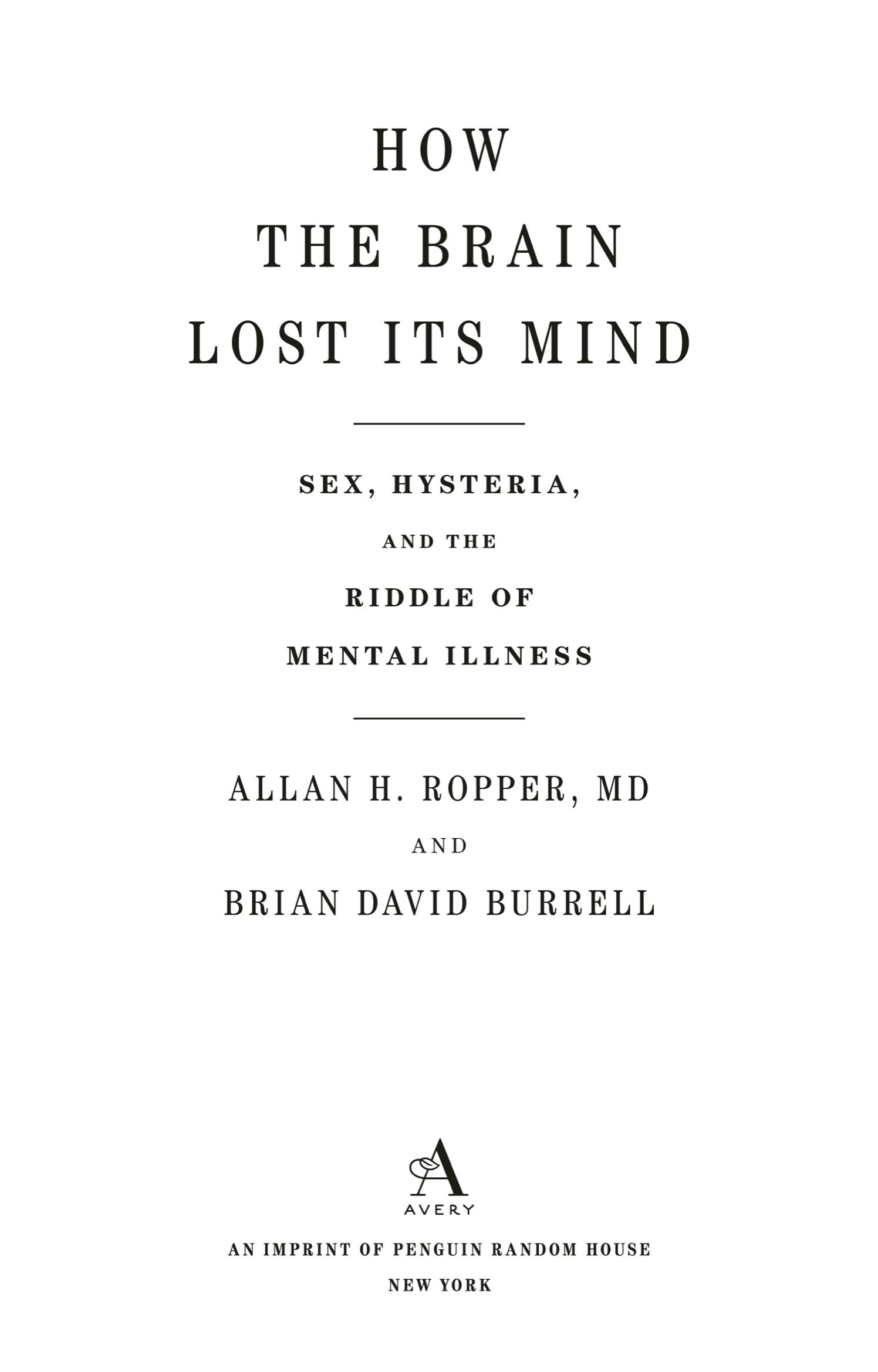

an imprint of Penguin Random House LLC
penguinrandomhouse.com

Copyright 2019 by Dr. Allan H. Ropper and Brian David Burrell
Penguin supports copyright. Copyright fuels creativity, encourages diverse voices, promotes free speech, and creates a vibrant culture. Thank you for buying an authorized edition of this book and for complying with copyright laws by not reproducing, scanning, or distributing any part of it in any form without permission. You are supporting writers and allowing Penguin to continue to publish books for every reader.
LIBRARY OF CONGRESS CATALOGING-IN-PUBLICATION DATA
Names: Ropper, Allan H., author. | Burrell, Brian, author.
Title: How the brain lost its mind: sex, hysteria, and the riddle of mental illness / Dr. Allan H. Ropper and Brian David Burrell.
Description: New York: Avery, an imprint of Penguin Random House, 2019. | Includes bibliographical references and index.
Identifiers: LCCN 2018058487 | ISBN 9780735214552 (hardback) | ISBN 9780735214576 (ebook)
Subjects: LCSH: NeurosciencesHistory. | BrainResearchHistory. | Mental illness. | BISAC: MEDICAL / Infectious Diseases. | MEDICAL / History. | MEDICAL / Neuroscience.
Classification: LCC QP353 .R67 2019 | DDC 612.8/2dc23
LC record available at https://lccn.loc.gov/2018058487.
Une Leon Clinique la Salptrire by Andr Brouillet 1887, FNAC 1133, Centre National des Arts Plastique. Copyright Public domain/Centre National des Arts Plastique. Photo courtesy Muse dHistoire de la Mdecine, Paris.
Version_1
For Dr. Raymond D. Adams, master clinician and author of the definitive book on neurosyphilis, who taught that there was only one brain and it belonged to both neurology and psychiatry.
AHR
For Jennie Bujnievicz, who taught us for a while, allowed us to see particular things, and then sent us on.
BDB (via TRP Jr.)
CONTENTS
AUTHORS NOTE
This book tells the story of a disease known for its uncanny ability to mimic the symptoms of almost any illness, mental or physical. Its root causesyphiliswas the driving force behind five centuries of fear and loathing, and though now viewed with little cause for concern in the developed world, it is epidemic elsewhere. Neurosyphilis, or syphilis of the brain, first appeared in Europe in the late 1700s, and produced a rapidly expanding wave of debilitating insanity that filled asylums and cut lives short in a grotesque and frightening way. As traumatizing and destructive as AIDS proved to be two hundred years later, neurosyphilis cast a pall over the sexual lives of people from all walks of life for the better part of a century, while its cause and nature remained a mystery. Its shadow may no longer haunt us, but it is still with us today, although shunted into the neglected corners of medicine.

